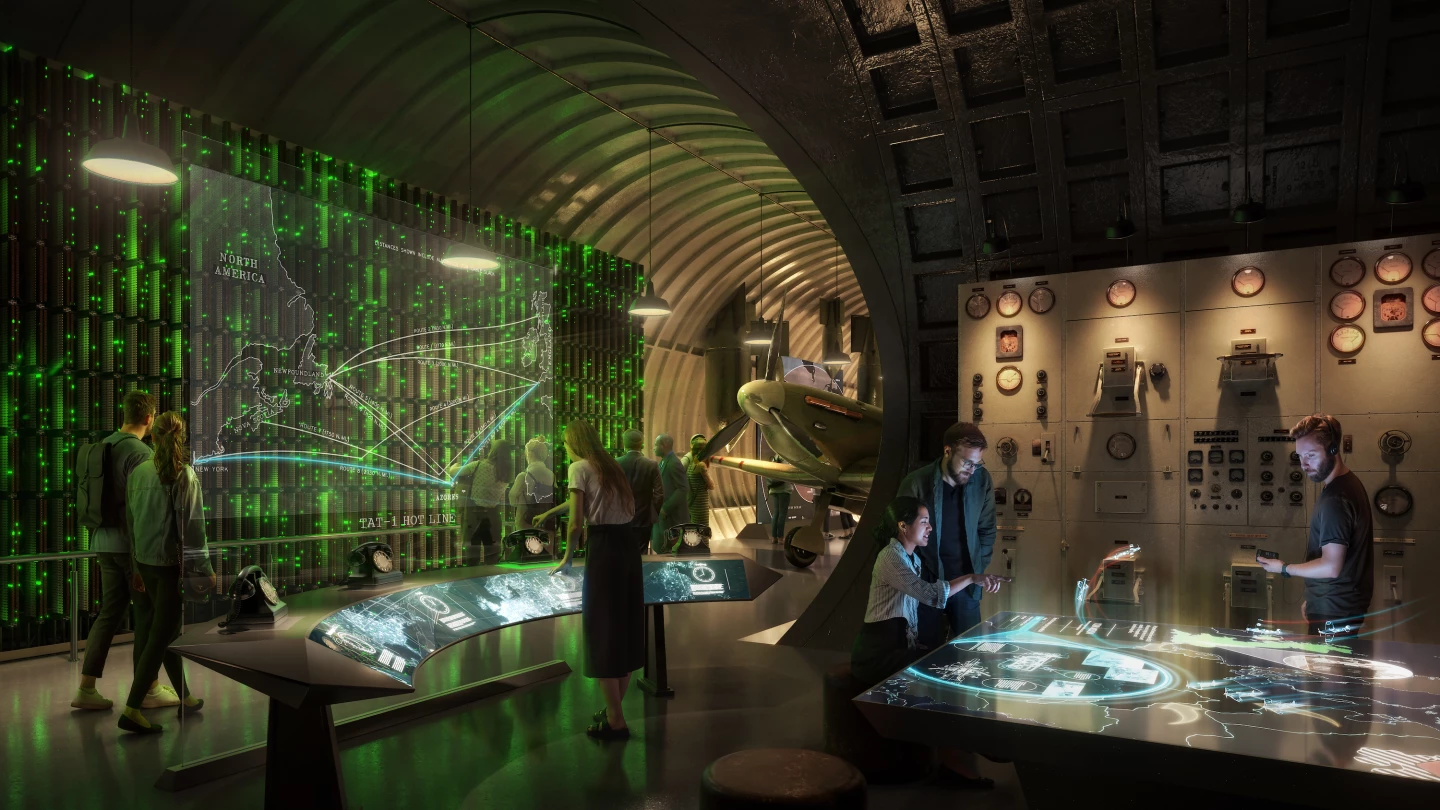Hidden roughly 40 m (131 ft) below central London's streets lies a fascinating but little-known network of tunnels. Originally conceived as a bomb shelter during WWII, the Kingsway Exchange Tunnels were used as a telecommunications center and even a spy headquarters. Now WilkinsonEyre has revealed plans to open them up and tell their story to the public.
As mentioned, the Kingsway Exchange Tunnels were originally built in the 1940s to protect Londoners from Nazi bombs during the Blitz, plus they also served as a home for the Special Operations Executive branch of MI6 – indeed, WilkinsonEyre says they inspired the depiction of James Bond's Q Branch. Following WWII, they were then expanded upon and hosted a Transatlantic telephone link, playing a crucial role facilitating the hotline between Washington and Moscow during the Cuban Missile Crisis.
During its peak, the site accommodated up to 200 staff, supported by self-contained water and air conditioning systems. It also boasted some amenities, including a restaurant, what was thought to be London's deepest licensed bar, and a recreation room complete with snooker tables. However, by the late 1980s, telecommunication technology had advanced to the point that the tunnels were deemed obsolete and they largely remained unused. WilkinsonEyre says that after 70 years of protection under the UK's Official Secrets Act, a significant portion of the underground network will be opened up to the public.

Assuming it goes ahead as planned, the renovation will be focused on a section of the tunnels that measures a combined length of 1 mile (around 1.6 km) and 8,000 sq m (86,111 sq ft). The tunnels measure 7.6 m (24 ft) in diameter, or approximately the width of three London buses, and will be used to host exhibition spaces and displays, as well as some of the original telecommunications gear.

"Subject to planning approval, the vision is to transform the tunnels into one of the world's most unique cultural experiences," explained WilkinsonEyre. "It will bring to life the history of the tunnels by installing high-resolution large-scale curved immersive screens, together with interactive structures, scent- emitting technology and hundreds of individual acoustic pinpoint speakers. With an operational capacity of two million visitors per year, the tunnels could also host different experiences in partnership with major entertainment businesses, artists, performers and curators."
The London Tunnels proposal has been unveiled as part of a public consultation program to gather feedback before a planning application is officially submitted later this year. It has a budget of £220 million (roughly US$270 million) and is expected to open in 2027.
Source: WilkinsonEyre






